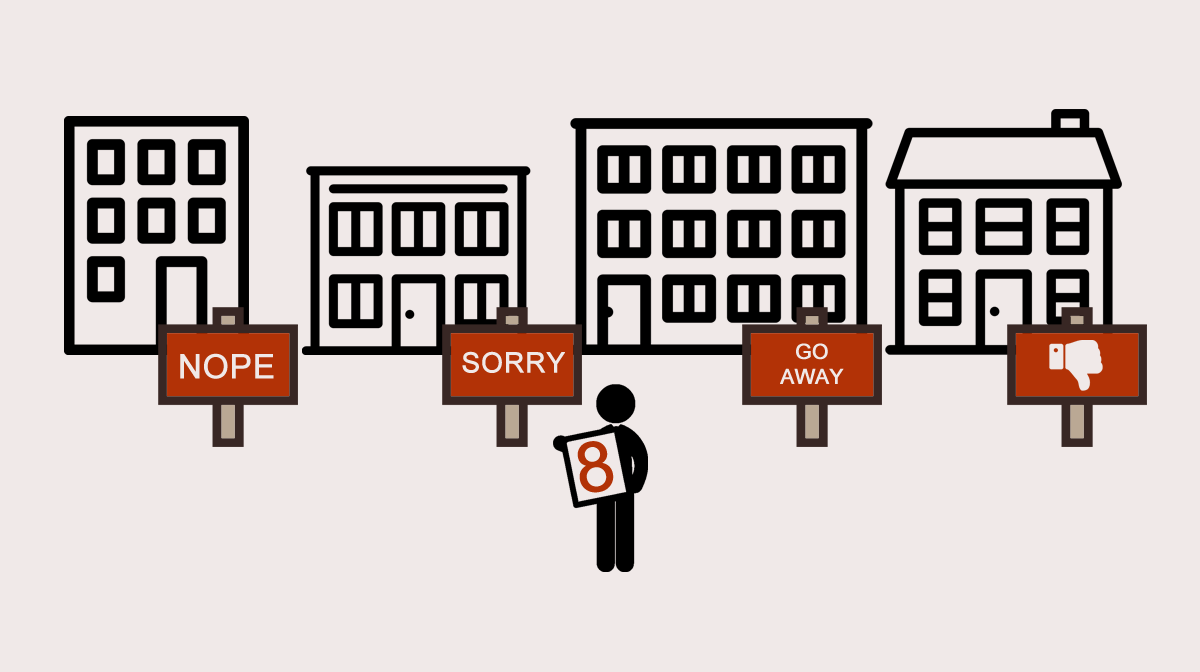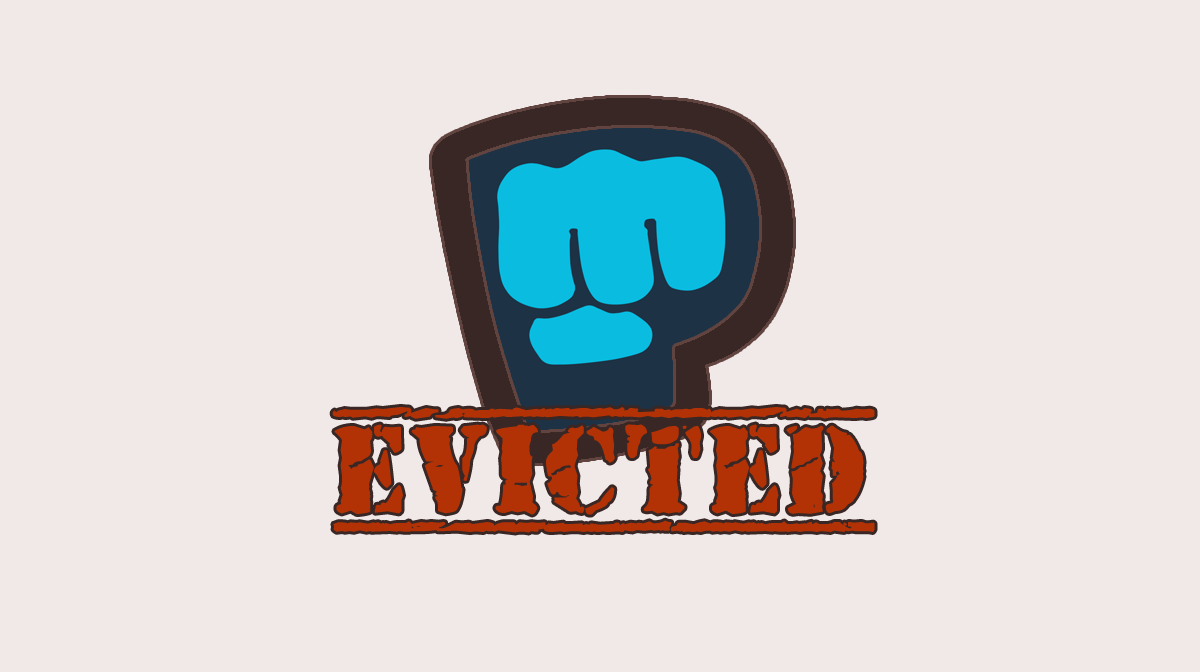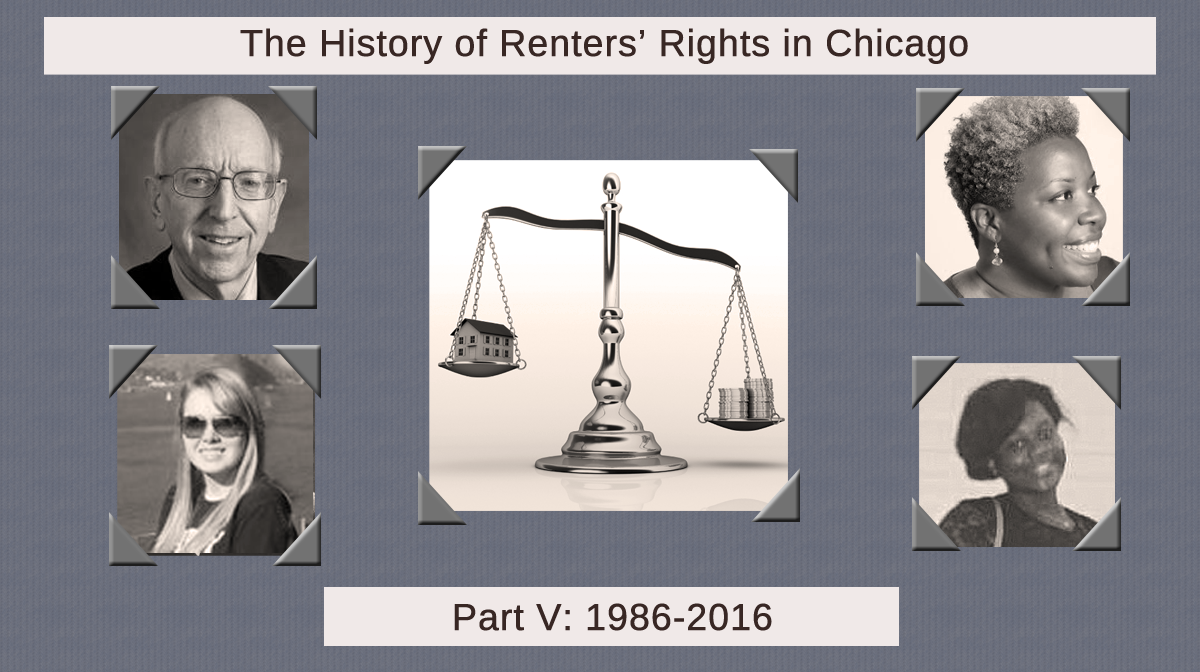Note: Normally I try to write to the population of the US as a whole, using my home city of Chicago as an example. Today we can't do that. Today is about Chicago, its locations, its neighborhoods and in some cases individual buildings. I've tried to make it as accessible as possible for folks outside of Chicago but for this to make sense you really do need to at least know the geography.
Last June the Chicago City Council voted to implement strict laws governing taxes and restrictions on who can host tourists through the AirBNB online home sharing website and similar short term vacation rental websites such as VRBO and Homeaway. While parts of the ordinance are still being hammered out and the whole thing is being sorted out in the court system, the new laws are still supposed to take effect at the end of this month, on February 28 2017. (Post publication edit: the effective date has been extended to March 3, 2017.)
Like other similar laws designed to protect legitimate businesses such as those governing ridesharing programs and food trucks, the Home Sharing Ordinance was originally meant to protect hotels from unfair competition. Hotels are subject to inspections and quality control checks that generate a lot more cost overhead than the largely unregulated condos and apartments being offered up on home sharing sites. However, over the course of the evolution of the law it became a way for owners to legally reject the tourists that use the service.
The city provides a list of buildings that have banned home sharing effective next week on its data portal. Before I viewed it the first time I used my knowledge of various building communities in Chicago to make a guess as to 10 buildings that I thought would be on it. In a sad but telling result that speaks to Chicago's racial, economic and generational divides I was right on every single one of them.
The Flop: The City Shows Residents' Hands
We're now less than a week away from the start of the home sharing restrictions in Chicago and as of now 1060 buildings have gone on record with the city to ban home sharing. Owners and renters in these buildings who are caught hosting on home share sites will be subject to fines. You can see the full list at the city's data portal in spreadsheet format. I've embedded a map below. (Note: you may need to zoom in a couple of times to see meaningful information on the map.)
House Share Prohibited Buildings List - Map (View full screen)
The list will probably change over time. It will grow and possibly shrink. More importantly, if currently pending lawsuits go through it may never even be enacted at all. What we see right now though is a unique and valuable snapshot. It's the communities that were so thirsty to ban home sharing that they have gone through city paperwork to file a ban despite not knowing if the ban would even take effect, and in advance of its start date. As a side note, I recognize a lot of these addresses from lists of those who were dragging their heels and procrastinating on coming into line with the High Rise Life Safety Ordinance in recent years. Because who wants to go through unnecessary city paperwork, right? It's such a drag.
The reasons provided by participants in the home sharing ban are largely based on security and noise concerns, claiming that short term visitors who come in via home sharing sites are rowdy and dangerous drunks. They may also be foreigners, and we know that America's xenophobia is at an all time high right now. But if anyone with a basic knowledge of Chicago's racial and class boundaries looks at the map above, the real issues are patently clear. With the exception of a handful of properties in Lawndale (which we will discuss in detail a bit further on), the buildings that have opted out are clustered in predominantly white upper class neighborhoods.
No matter what the initial premise was for creating these laws, their implementation has given us a codified example of NIMBYism. In order to enact a ban on home sharing you need to have a cluster of people living in a tourist-friendly community that have technical savvy, disposable income, disdain for younger consumers, and enough privilege to think that they can dictate how others use their living space. Now I'm not saying these people are jerks. They want a quiet living environment, and they want to protect the value of their investment - I think most of us do.
Having shown property in a lot of these communities over the course of my time as a Realtor, I can say that the divide has some basis in class and race but it is also a generational thing. Many of the buildings that have chosen to implement the ban are known to be home to an older population, old money and legacy traditions of etiquette. You don't see Aqua or K2 on there. You don't see anything along the 606 on there. The map shows the smartphone vs dial tone generational split in Chicago.
Opting Out: It's Not Just for Condos Anymore!
Most of the properties on the ban list are condominium associations, homeowner associations (HOA's), townhomes and cooperatives. These are not rentals. Owners in buildings like these are part of voting bodies that have self-elected to ban their members from using home sharing services. But this is the RentConfident blog. We do apartments. Scattered among all the condo associations there are also a handful of landlords on there who have decided unilaterally to prohibit their tenants from renting out their apartments on sites like AirBNB. Today is mostly about them.
If a condo owner decides that they don't want home sharing in the building where they live it's kind of understandable. Nobody wants to live near noisy neighbors, and when you're paying monthly for the upkeep of your building you don't want it wrecked by troublesome transients. Condo associations have some say in who moves into the building but they can't control who comes in through a home share service. By contrast, an offsite landlord doesn't have to worry about who's sleeping next to him. Enforcing and fining tenants for violating the ban is a lot of work on top of the maintenance and eviction caseload of a normal landlord. Therefore one would think that a decision to ban home sharing in an apartment building must in most cases be a financial matter. Knowing what I do about local landlords I wanted to look at which ones have opted in to the ban and give some conjectures about their reasoning.
I went through all 1060 properties on the list, discarded all the condos, coops and townhomes and was left with 178 apartment buildings distributed across just 17 landlords. You can find the filtered list in spreadsheet format here. A map of the filtered locations is included below. Not counting buildings that have preemptively opted out before they're even open for occupants, these 17 landlords have collectively added 14751 of the 104999 units to the overall list of units where home sharing is banned citywide.
Here's a tally of landlords & rental property managers ordered by how many buildings they have on the list:
- Holsten Management: 67
- BJB Properties: 40
- Reside Living: 37
- RTS Properties: 9
- The Habitat Company: 6
- Le Breton & Sons: 4
- AMLI: 3
- Cagan: 2
- RMK Properties: 2
- Village Green: 2
Bean Properties, ICM, Laramar, Ventresca, Muamera Mjdragic, and Vranas all have banned home sharing in one of their buildings each.
Thoughts on the Landlord List
There are very good reasons why landlords would want to ban home sharing in their rental buildings. They need to know who is living in their buildings at all times. Landlords don't like unannounced roommates, but if they try to evict one in a building with home sharing in place their case is pretty much shot. It's also important to consider that early versions of the ordinance required buildings that allowed home sharing to provide lists of all occupants to the city on demand, and imposed many restrictions on what hosts could and couldn't provide for their visitors. I could see how the chance for a landlord to be held liable and fined for a tenant's violation of the home sharing law is just too high for many landlords to stomach, especially in a city with a reputation for favoring tenants like Chicago. You get one lawsuit-happy tourist with an axe to grind and they're going after anyone involved with deep pockets, including the landlord. The ordinance also limits the number of home sharing units that can be in use in a building at any one time - I have no idea how landlords are going to keep track of that, and I don't envy them the task.
It's no surprise to see Holsten at the top of the list. They have made their name by developing low income housing in middle to high income neighborhoods. In fact, 12 of their properties on the list are listed under "Lawndale Apartments" and owned by a company called "Lawndale H&A Bond LP", a joint venture between Holsten and the controversial defunct affordable housing advocacy group ACORN. Many residents in low income housing buildings are restricted in how much money they can earn from any source before they lose their right to live there. These are properties that were built on the premise that people with limited incomes should have access to good housing. Some such as the Wilson Yard community in Uptown required zoning changes, TIF money and infinite town hall meetings to get built in the first place. If wealthy tourists with disposable income for travel were using these spaces there would be an understandable outcry. The choice to keep these units out of the home sharing pool is probably a good idea for the safety of all involved.
Of course there are other low income rental housing developers in Chicago besides Holsten. One wonders why their properties aren't on the list.
Moving from the poor to the wealthy, it's also not much of a surprise to see AMLI and Village Green on there - they take a very swanky gated community approach to their management and are speaking for REITs, focusing on Class A property with high rent rates. They take 1822 units out of the home sharing pool. However it's interesting to note that Village Green has only opted out for two out of their 10 Chicago buildings while AMLI has blocked it universally at all three of their Chicago locations. Properties of this caliber would actually be in direct competition with hotels, offering similar amenities and very posh addresses. Bans in these locations keep to the original spirit of the law. However, given the tech-savvy, globetrotting millennials that these companies are trying to attract they may be shooting themselves in the foot in the marketing department.
BJB and Reside have more diverse portfolios, with buildings from all classes. Like the REITs, they are known to have ownership interest in all of the buildings that they manage. In both cases they have eliminated their entire holdings from home sharing. Together they have removed just shy of 7000 units from potential home share use. Lesser known owner-managed companies RTS Properties and Le Breton & Sons have also similarly blocked home sharing in all of their Chicago locations. It's notable that RTS's buildings are clustered in somewhat troubled west side areas that are not frequented by tourists, but they have chosen to ban home sharing anyhow. These management companies handle buildings that are directly owned by the company.
By contrast, Habitat Company, RMK Properties and Cagan Management take on third-party management contracts for a variety of owners. Neither of them display the sort of comprehensive portfolio-wide bans that we see from BJB and Reside. These companies are beholden to the wishes of the individual buildings' respective owners. As property managers they may have made recommendations to the owners but one cannot know on the outside if this was the case.
The majority of Habitat's market rate apartments are on the list, but not all of them. Those included are clustered in the downtown districts most frequented by tourists. However, their "affordable housing" buildings in the outskirts of the city are not included in the ban. Cagan has also blocked home sharing in a few specific locations - only their two properties closest to Wrigley Field ban home sharing out of their many locations citywide. Can't really blame them for that one - Cubs fans do have a certain reputation for being the "rowdy drunken tourists" so feared by those who have gone on record in favor of the ban. RMK handles a hybrid portfolio of apartments and condominiums, including 73 East Lake, listed in the city's records as a condominium association but marketed as rentals. They also have selectively implemented the ban.
Some large scale management groups are notably absent, including north side mainstays such as Cedar Street/FLATS, Group Fox, M. Fishman, AMG, Horizon, Hunter Properties, Peak Properties, Hallmark & Johnson, TLC, and Hyde Park's MAC Property Management. Some of them may be waiting to see if the law actually goes into effect despite all the lawsuits. For others the cost of implementing a ban in terms of man hours and cash overhead may be more than they're willing to pay.
Thoughts on the map
Looking at the rental map there is an obvious tilt towards the northeast section of the city most frequented by tourists.
There are no rental properties (or any buildings for that matter) in the vicinity of O'Hare or Midway airports that have banned home sharing. For an ordinance designed to protect hotels you'd think there would be a few more bans out there.
Wicker Park and Bucktown are both relatively free of bans, as is Logan Square. These are areas that have become popular recently among wealthy millennials, but are less popular among the older generations. By contrast, in the former factory district turned loft mecca of the Near West Side and Fulton Market you are pretty much fine to do home sharing as a renter, but condo owners have put the kibosh on it. However, this is the area where Alderman Burnett famously lashed out at owners for being bigots over their anti-renter stance just over a year ago. It's not surprising that the condo owners have rejected home sharing as well.
The near complete absence of bans across the entire south side (with the exception of Hyde Park) makes the technological, racial and income divides very clear, and shows which areas of the city are considered desirable to tourists. After all, why implement a ban on tourism in your building if you haven't already encountered it along with its problems? Why ban home sharing if you've never even heard of it?
I'm sure there are other things that you clever and savvy readers will draw out of the map and list. Let me know your thoughts in the comments!
RentConfident is a Chicago startup that provides renters with the in-depth information they need to choose safe apartments. Help us reach more renters! Like, Share and Retweet us!






